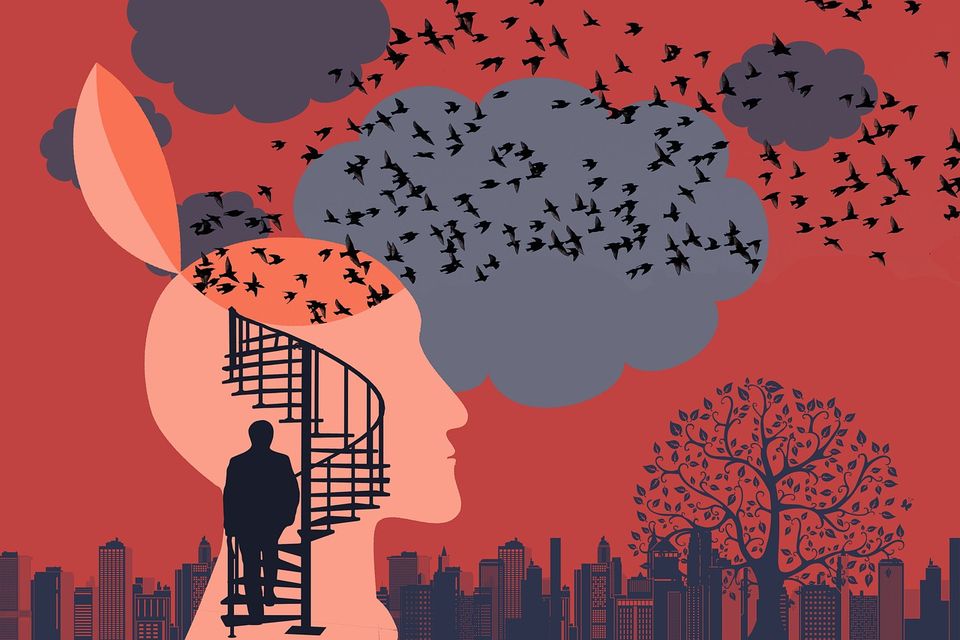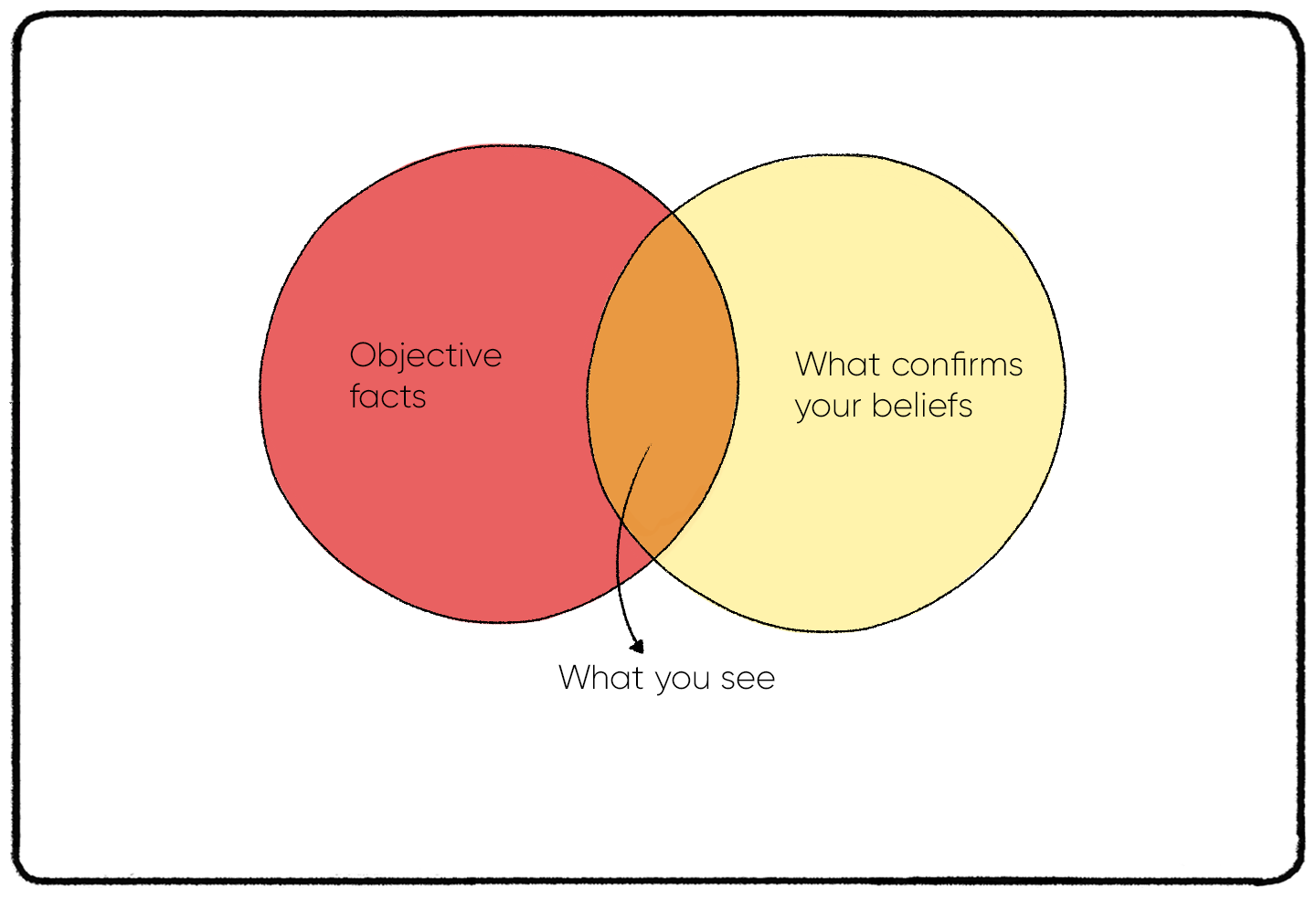Psych Friday: Are You a Victim of The Confirmation Bias?

The confirmation bias is a powerful cognitive bias that shapes our perception of the world.
The confirmation bias, at its core, is our innate inclination to favor information that aligns with our existing beliefs, while disregarding or downplaying evidence that contradicts them. It is a cognitive bias that affects how we gather, interpret, and retain information.
This powerful bias can shape our perceptions, decision-making processes, and interactions with the world around us. In this blog post, we will explore the nature of confirmation bias and its impact on our daily lives, shedding light on the challenges it presents and offering strategies to navigate its influence.

Definition:
Confirmation bias is the human tendency to selectively seek, interpret, and remember information that supports our pre-existing beliefs, while neglecting or dismissing evidence that challenges or contradicts them.
This bias often operates unconsciously, leading us to favor information that confirms what we already believe to be true, creating a skewed and filtered perception of reality.
By seeking validation rather than objective truth, confirmation bias can hinder our ability to make rational, well-informed decisions and impede personal growth and intellectual development.
Understanding confirmation bias is a crucial step towards becoming more aware of our cognitive biases and fostering a mindset that embraces critical thinking, open-mindedness, and a willingness to challenge our own beliefs.
By recognizing and addressing confirmation bias in our lives, we can strive for a more balanced, objective, and nuanced understanding of the world.
Confirmation Bias in Different Areas of Life:

1. Diet and Nutrition:
Imagine someone who strongly believes that a low-carb diet is the key to weight loss. Despite the availability of diverse scientific research on different dietary approaches, they exclusively seek information that supports their belief while disregarding evidence that suggests other approaches may be equally effective.
This bias prevents them from considering alternative strategies and may hinder their ability to make informed decisions about their health.
2. Depression and Mental Health:
Confirmation bias can also impact individuals struggling with depression. If someone believes that they are unworthy of love and happiness, they may interpret any interaction or event as proof of their inadequacy.
Positive experiences or compliments may be dismissed as insincere, while negative encounters are seen as further confirmation of their self-perceived flaws. This bias reinforces their negative beliefs and can contribute to a cycle of despair.
3. Social Circle and Perspective:
Our social circles can be heavily influenced by confirmation bias. We tend to seek out friends and acquaintances who share similar beliefs and values, creating an echo chamber of confirmation.
Within these circles, discussions rarely challenge pre-existing notions, limiting the opportunity for personal growth and intellectual expansion.
By intentionally seeking out diverse perspectives, we can broaden our understanding of the world and challenge our own biases.
4. Blindness to Our Own Faults:
Confirmation bias often manifests in our inability to acknowledge our own faults and shortcomings. We may overlook or dismiss feedback or criticism that challenges our self-perception.
For example, imagine someone who constantly interrupts others during conversations. Despite receiving feedback from multiple sources, they rationalize their behavior as enthusiasm or assertiveness rather than recognizing it as a lack of active listening skills.
This bias protects their ego but inhibits personal growth and the development of healthier communication habits.
Overcoming The Confirmation Bias
- Embrace Cognitive Awareness:
Recognize that confirmation bias exists and be vigilant in identifying its presence in your thoughts and decisions.
Cultivate a mindset that actively seeks alternative perspectives and challenges your own beliefs. - Practice Balanced Information Gathering:
When exploring a topic or making decisions, consciously seek out diverse sources of information that present varying viewpoints.
Consider different research studies, consult experts with different perspectives, and engage in thoughtful debates that encourage critical thinking. - Encourage Constructive Feedback:
Create an environment that values open and honest feedback. Surround yourself with individuals who are willing to challenge your ideas and beliefs constructively.Embrace feedback as an opportunity for growth and self-improvement. - Engage in Self-Reflection:
Regularly reflect on your own actions, behaviors, and beliefs. Be open to the possibility that you may have biases or blind spots.
Actively seek feedback and be willing to address areas where you may need personal growth or behavior change.
The confirmation bias has a profound impact on our lives, influencing our choices, beliefs, and interactions.
By understanding its role in different areas such as diet, depression, social circles, and self-awareness, we can take active steps to mitigate its influence. Embracing cognitive awareness, seeking diverse perspectives, fostering constructive feedback, and engaging in self-reflection are powerful strategies to counteract confirmation bias.
By doing so, we can cultivate a more balanced perspective, make informed decisions, and foster personal growth.
Let's strive for intellectual openness and continue to challenge our own biases for a richer and more meaningful life experience.
Now it's your turn:
Think about situations in your own life where confirmation bias may have influenced your decisions or interactions. Can you recall instances related to your diet, mental health, social circle, or personal blind spots?
How can you apply the strategies discussed in this post to foster a more open and unbiased mindset?
Here are five reflection questions to help you delve deeper into your own biases and encourage self-reflection:
- What beliefs or opinions do I hold strongly? Are there any areas where I might be resistant to considering alternative viewpoints?
- How does confirmation bias manifest in my daily life? Can I recall specific instances where I sought out information that supported my existing beliefs while dismissing contradictory evidence?
- Have I actively sought diverse perspectives in my social circle? Am I open to engaging in discussions with individuals who hold different beliefs or opinions? How might this impact my ability to grow and broaden my understanding of the world?
- Can I recall situations where I may have overlooked feedback or criticism due to confirmation bias? How did this hinder my personal growth and development? What steps can I take to be more receptive to constructive feedback in the future?
- In what areas of my life, such as my diet, mental health, or decision-making process, do I notice the strongest presence of confirmation bias? How can I proactively challenge and overcome these biases to make more informed and balanced choices?